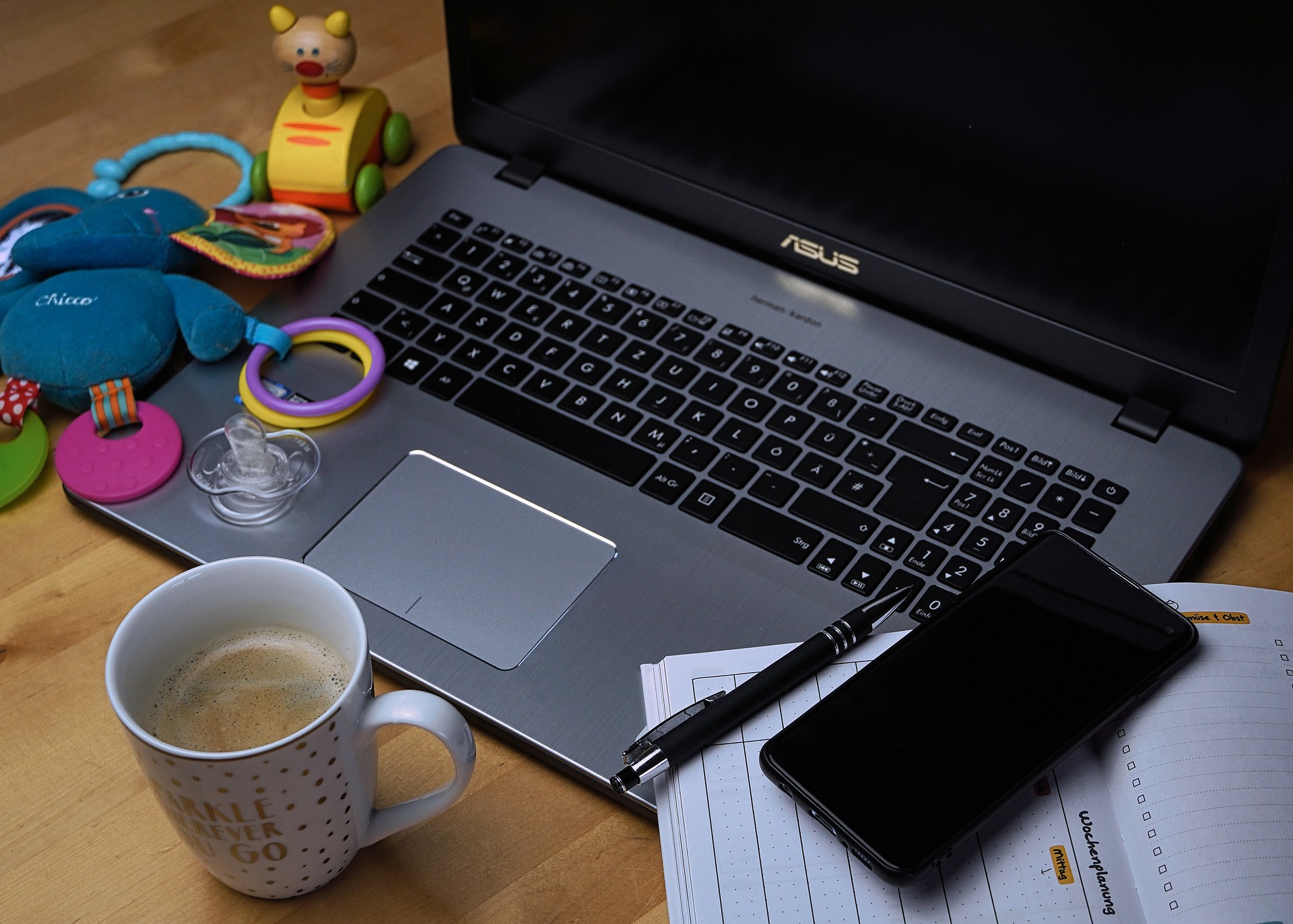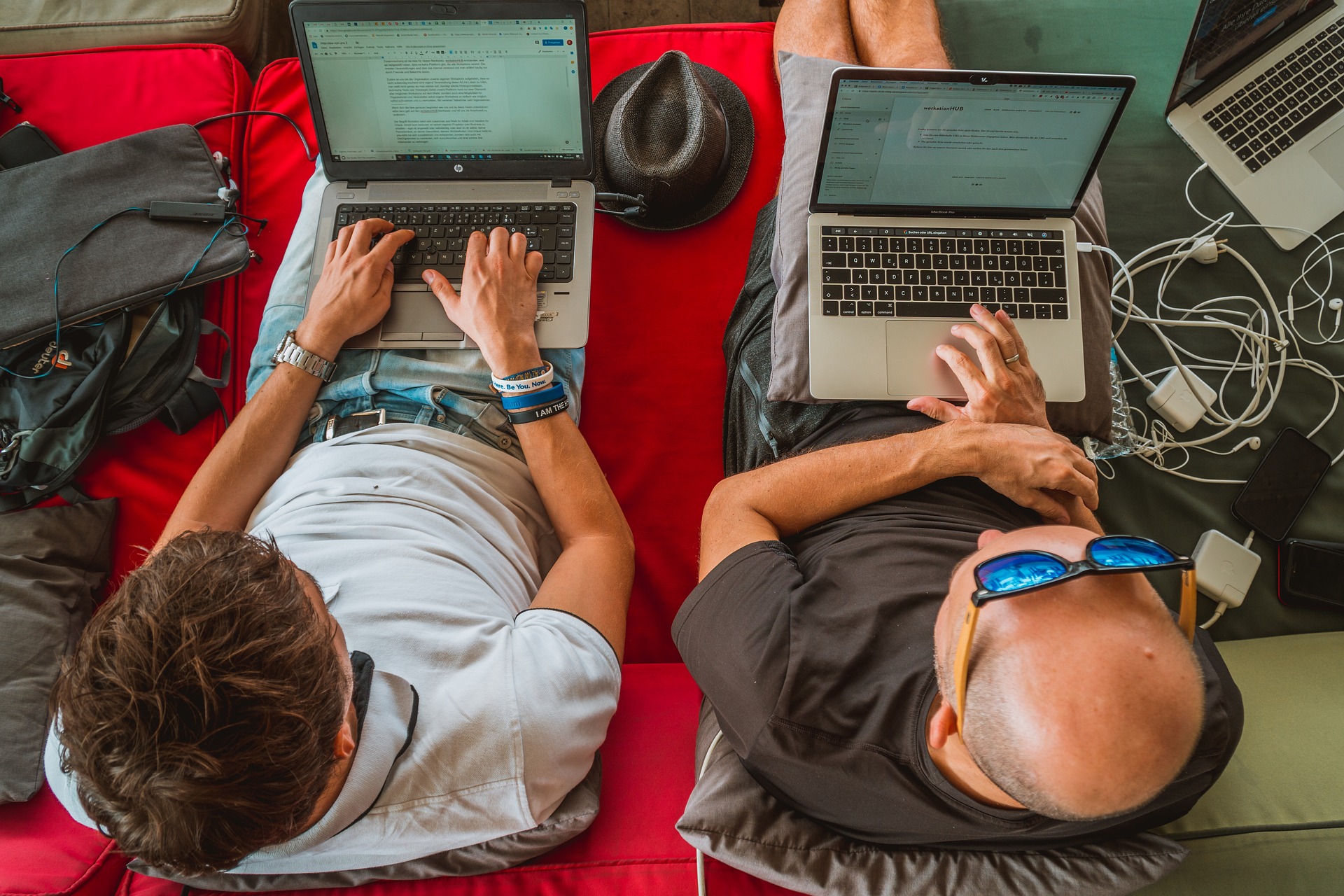“I struggled hard to explain that work shouldn’t be 24/7, but it wasn’t up for discussion. I once got a sudden conference call at 10 P.M. while I was in bed and simply decided not to attend. The next morning, I was shamed for it,” 29-year-old Sarah Abdelkereem explains as she recalls her first days of working remotely in her banking job.
Working from home is not a new concept on the global scale, but it was a big shift in Egypt when many employees like Abdelkereem found themselves forbidden from going to their offices in March 2020 during the onset of the Covid-19 pandemic.
More than a year later, many companies in Egypt are gradually allowing employees to come back to the office, often on a rotational basis to maintain social distancing measures in the workplace, while some are considering shutting down their offices altogether. How have employees been handling the change?
Speaking with corporate employees from different sectors, they all describe their experience as a curve; for some, it began on a positive note and became more challenging over time, while others report a difficult start that gradually balanced itself out.
Voluntary vs Involuntary Remote Work
One might assume that being told to work from home was good news for corporate employees in Egypt due to the appeal of not having to commute to work, especially considering the notorious reputation of Cairo traffic.
However, it is important to distinguish between voluntary remote work and involuntary remote work. Being offered the option to work from home is one thing, but being obligated to work from home is completely different – particularly since individuals were discouraged from going outside in general and were therefore hesitant to try working from co-working spaces or cafes.
Even though a 2019 study shows that voluntary remote work may lower stress levels and boost morale, it also reveals that involuntary work schedules are associated with more “work-to-family conflict, stress, burnout, turnover intentions, and lower job satisfaction.”
At-Home Burnout
For Abdelkereem, the initial request to work from home did not get off to a great start. She felt overworked and overwhelmed by her now non-stop workday at a bank.
“People began abusing the fact that we’re all stuck at home; they’d start working at noon and then keep working until late at night,” she explains.
Another 2019 study of 259 establishments in nine European countries finds that an individual employee’s work-from-home performance is affected by whether or not their colleagues work remotely; meaning, an employee working remotely is more likely to perform better when their colleagues, in contrast, work from the office.
This is estimated to be due to how employees influence each other and how readily available they are to exchange important information. The study concludes that – depending on the nature of the work – digital presence is not always as effective as being present in person. The study also finds that an employee’s productivity at home is affected by frequency; it reports that those working full-time from home are in general less productive than those who don’t work from home.

Abdelkereem admits that she once believed the key to succeeding in the corporate world was by being a “corporate slave,” but now she understands the importance of maintaining a work-life balance.
One of the biggest struggles facing remote workers is their inability to unplug after the workday. A 2020 study carried out by BMC Public Health reveals that “the blurring of physical and organizational boundaries between work and home” can negatively affect mental and physical health because employees can end up working for much longer hours.
This may be more relevant in the context of corporate employees who never felt the need or had the luxury to create a home office and therefore have to work from their couches or dining room tables; leaving them no real recreational space at home to ‘escape’ after the workday ends.
Despite feeling drained and stressed, Abdelkereem felt like she couldn’t ask for a vacation since everyone considered working from home a type of vacation in itself. “Even after all the awareness provided about mental health, it’s still hard to approach a manager for a vacation if we’re not feeling okay – it’s just not a common thing to do,” she says.
31-year-old Khaled Aboel Abbas, who works in the medical technology sector, created a workstation at home since his work continues to be done remotely. He is no stranger to the concept as his former employer provided flexible working conditions where employees could opt to work from home on occasion.
He notes that the best way to avoid work calls during inappropriate hours is to set one’s boundaries, such as how Abdelkereem reacted to the late call. “Once people realize you don’t respond after working hours or during public holidays or days off, they’ll learn to adapt,” he says.
Abdelkereem adds that her requests for more stable working hours were largely ignored due to her marital status as a single woman since she wasn’t “in charge of a home” or raising children.
“I don’t think people at work should even know their colleagues’ marital status because it’s irrelevant; you’re an employee just like any other employee,” Aboel Abbas explains, adding that his company regularly organizes anonymous organizational surveys to call out such behaviors.
A (Temporary) Rise in Productivity
“Being productive was tough at first because I wasn’t used to working from home; there were some days in the beginning where I simply wouldn’t work if I didn’t have any meetings,” Abdelkereem explains.
Unlike her, Aboel Abbas’ experience with working remotely got off to a good start at first. “It was easier because my daily commute to work took up most of my time and energy, so I felt happier and more productive because I was around my family,” he explains.

However, nearing the end of 2020 he began feeling his productivity drop due to the distractions around the house.
“I felt like I wasn’t doing enough and not performing as well as I should be, so I started going down a spiral of self-blame; when you’re at the office, you’re present and you feel like you are ‘at work,’ so that feeling of not giving enough is not there,” he says.
His wife, 29-year-old Nour Eldeeb, works at a fast-moving consumer goods company (FMCG) and is also working from home, so both have to manage work calls alongside taking care of their young child.
“It becomes difficult to focus on one task, versus the office when you can fully devote your time and concentration to get something done,” he says.
A Forbes article published this year claims that global reports of increased productivity during the pandemic aren’t completely accurate because they don’t consider the fact that many employees end up working for longer, uncompensated hours.
Eldeeb also enjoyed the prospect of working remotely at first, especially due to the health risks of going outside at the beginning of the pandemic. She often worked remotely during her pregnancy, which was before the pandemic, and felt like she was better able to focus on her work at home, however, working remotely became more challenging after she became a mother.
“I couldn’t cope because of the distractions; my child is very attached to me, so I couldn’t focus on my laptop for even a couple of hours. I missed the feeling of going to the office and being able to concentrate,” she says.

Adapting to the New Normal
What all three individuals have in common, however, is that they managed to adapt to their new work schedules and establish a stable routine.
Abdelkereem now finishes her work early in the morning then dedicates the rest of her day to meetings and calls to accommodate colleagues who start their workday later in the day. “I feel like both sides have accepted each other’s routines and we managed to find a balance,” she says.
Prior to the pandemic, Abdelkereem had been committed to incorporating exercise into her day-to-day life. Unfortunately, with gym closures and a demanding workday, she initially had no time or space to exercise and the sudden onset of a sedentary lifestyle began taking a toll on her, making her feel depressed and anxious.
“Once I found ways to exercise from home, I noticed the difference immediately and felt much less anxious,” she says.
Eldeeb usually finishes her work calls during working hours then completes her work at night after she puts her child to bed. “A big part of my job is very detail-oriented so I can’t be distracted,” she says. Aboel Abbas, on the other hand, commits to his normal working hours but opts to treat his workstation as an office that he ‘leaves’ when his workday ends.
The couple still works from home full-time, while Abdelkereem has gradually started returning to the office. She was relieved by the prospect since working from home had doubled her utility bills, and because she welcomed the change of scenery.
“That first day back in the office felt like the first day of school after summer vacation, I’d missed everyone and enjoyed seeing my colleagues after being stuck at home for so long,” she explains.
She notes that she is now generally more productive when working from home because it allows her to be more focused, but she enjoys occasionally going to the office.
Eldeeb agrees that working from the office is not always productive due to other distractions that might present themselves, such as getting coffee with colleagues or deciding to order lunch.
“The key lies in moderation; once something is offered in excess, whether office work or working from home, the negative aspects begin to appear,” she explains.
Aboel Abbas and Eldeeb both agree that having colleagues around them in person helps streamline work processes since they’re able to cooperate and brainstorm together.
Human beings are social creatures, so it’s hard to deny the role of social interaction in boosting morale and keeping employees from feeling isolated. There are accounts of employees who would gladly return to their offices due to how lonely they feel working from home. It can be argued that a suitable middle ground could be a hybrid model that combines on-site work and working from home, as is implemented by several companies around the world.
Subscribe to the Egyptian Streets’ weekly newsletter! Catch up on the latest news, arts & culture headlines, exclusive features and more stories that matter, delivered straight to your inbox by clicking here.






Comments (2)
[…] المصدر by [author_name] كما تَجْدَرُ الأشارة بأن الموضوع الأصلي قد […]
[…] “It’s Been a Curve”: How Working Remotely Affected Employees in Egypt […]